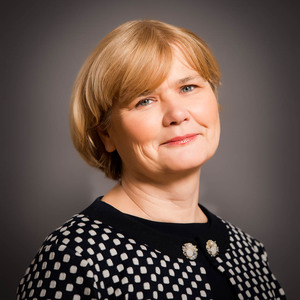How to create multi-generation teams that work well? Are we ready to give up the established order?
By Jana Martinová, Managing Director Accord Group ECE Czech Republic and Slovakia
This blog was first posted in Czech on Jana’s LinkedIn Blog. Read the original version here

Diversity in the Czech Republic … is about age
Considerations about integrating the “Generation Z” into our existing organizations are perhaps odd. The question of the day is actually: How to create multi-generation teams that work well? Our world is changing at such a pace that we expect the next generation to assume responsibility more quickly in our organizations. Increasing longevity has resulted in later retirement, and so we find ourselves working in teams of people belonging to three or more succesive generations.
Due to demographic development, the number of the older ones is clearly increasing.
A special feature of our time is that some young specialists today outperform their older colleagues with years of experience in certain areas of expertise and technology.
On the contrary, the elderly are usually ahead in soft skills helping them to read the behavior of the people they interact with and understanding their relationships and functioning. This skill is not only useful in management, but also in comerical and other negotiations or structuring organizational units. In creating new strategies, both awareness of future opportunities and needs as experience are more than needed. In this field, the cooperation of the young competent with the experienced older colleagues is potentially the most beneficial.
Multi-generational teams are a challenge, but also a huge opportunity for a new way of working together and for mutual understanding.
A new distribution of knowledge, skills and experience between representatives of different generations can result in complementarity and a more balanced relationship between them. Either way, it will be the young generation who will determine the future of the world of work and adapt it to life in society according to its own values and ideas. It will push creativity and change and contradict the old order. However, if millenials, and generations Y and X shall truly complement each other in functional teams, new rules must be set.
On the way to a functional multi-generation team, two major obstacles must be overcome: traditional linear carrier paths and meritocracy in remuneration.
The expected career path of a successful manager is no longer linear and everyone must maintain flexibility and adaptability. In other words, if early promotion rises to the head of a manager, he or she will soon become a brake on further development. Organizations will gradually flatten and professional pathways will evolve horizontally.
This is also associated with a second obstacle, rewarding merit in compensation schedules.
In a flat organization, it is increasingly unacceptable for a high-skilled young professional to have his older colleague receive a much higher salary based on his past merits. The pay gap must result from the benefit of the activity to the organization and not from the employee’s history. The most paid ones should be those who possess the required expertise and the necessary soft-skills for management, while at the same time contributing the most to achieving the goals of an organization.
Does it sound familiar to you too?
In the early 1990s, a generational revolution had already taken place in companies in Central and Eastern Europe. Today’s fifties have replaced older and more experienced colleagues, as their experience was undermined by social change. More than technology skills, good English, German and French language skills were the hard currency of those days.
The role of senior bosses and mentors was then assured by foreign managers sent by international corporations quickly occupying the Czech-Slovak market in many industries.
The professional and managerial capital of “Husak’s Children – the generation X” – which are today and within the next 15-20 years the largest working populations in number - will be depreciated by new technologies and emerging digital native generations.
And this is in itself a pretty strong argument for age diversification of teams.
Functional and complementary multi-generation teams are a major challenge for the future world of work, and we must address them today. It begins with breaking down stereotypes and working with strengths and weaknesses among representatives of all generations, but it also requires accepting changes in the fundamental social paradigms as professional development and remuneration.
True diversity in the team will begin to work where we not only acknowledge the differing opinions, benefits and competencies of our colleagues, but will accept them as a source of inspiration for us.
